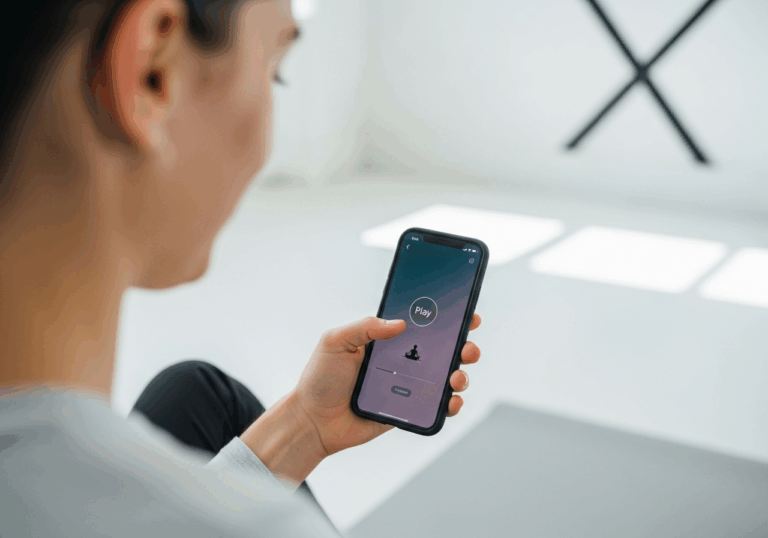Science-Backed Tips
Boost Your Mood with Self-Compassion
Self-compassion reduces heart rate reactivity by ~5 bpm.
📊 Did you know?
💡 Why It Matters
1️⃣
Self-compassion practices can directly reduce physiological arousal, improving emotional regulation.
2️⃣
Lower heart rate reactivity is associated with decreased anxiety and stress levels.
3️⃣
Enhancing positive affect can lead to better overall mental health and wellbeing.
✅ Try These Micro-Tips
🎯
Practice self-compassion exercises for 10 minutes daily.
🎯
Engage in mindful breathing techniques for 5 minutes when feeling stressed.
🎯
Write down three things you appreciate about yourself each evening.
🎯
Incorporate self-kindness affirmations into your morning routine.
📚 The study
Over a two-week intervention, participants engaged in self-kindness practices, followed by a stress induction phase where their heart rates were measured.
The results were striking: those in the self-compassion group experienced a remarkable drop in heart rate reactivity, averaging a decrease of about 5 beats per minute.
Additionally, this group reported a significant increase in positive affect, suggesting that self-compassion not only calms the body but also uplifts the spirit.
This research highlights the importance of self-compassion practices, which can directly reduce physiological arousal and enhance emotional regulation.
Lower heart rate reactivity is closely linked to decreased anxiety and stress levels, paving the way for improved mental health and overall well-being.
By fostering self-kindness, individuals can soothe their moods and cultivate a more resilient mindset, making self-compassion a powerful tool in managing stress and enhancing emotional health.
❓ Frequently Asked Questions ❓
Learn more
What is Generalized Anxiety Disorder (GAD)?
Generalized Anxiety Disorder (GAD) is a mental health condition characterized by excessive and uncontrollable worry about various aspects of life. Individuals with GAD often experience physical symptoms such as restlessness, fatigue, and difficulty concentrating.
How does self-compassion impact heart rate reactivity in individuals with GAD?
A 2-week self-compassion intervention has been shown to reduce heart rate reactivity by approximately 5 beats per minute in individuals with GAD. This reduction indicates a calming effect on the body’s stress response.
What are the benefits of practicing self-compassion?
Practicing self-compassion can lead to decreased physiological arousal and improved emotional regulation. It also enhances positive affect, contributing to better overall mental health and well-being.
How long should I practice self-compassion exercises daily?
It is recommended to practice self-compassion exercises for about 10 minutes each day. This consistent practice can help cultivate a kinder and more supportive relationship with oneself.
What are some examples of self-compassion exercises?
Examples of self-compassion exercises include writing down three things you appreciate about yourself each evening and incorporating self-kindness affirmations into your morning routine. Engaging in mindful breathing techniques for 5 minutes when feeling stressed can also be beneficial.
What is the relationship between heart rate reactivity and anxiety levels?
Lower heart rate reactivity is associated with decreased anxiety and stress levels. This suggests that interventions that reduce heart rate reactivity, like self-compassion practices, may help alleviate anxiety symptoms.
Can mindfulness practices also help with stress reduction?
Yes, mindfulness practices can help reduce stress by promoting relaxation and enhancing awareness of the present moment. They can complement self-compassion techniques for improved emotional well-being.
How does positive affect influence mental health?
Enhancing positive affect can lead to better overall mental health and well-being by fostering resilience and reducing feelings of anxiety and depression. Positive emotions can also improve coping strategies during stressful situations.
What is autonomic down-regulation?
Autonomic down-regulation refers to the process of calming the body’s autonomic nervous system, which controls involuntary physiological responses. This process can help reduce stress and anxiety, leading to a more relaxed state.
How can I start incorporating self-compassion into my daily routine?
You can start incorporating self-compassion by setting aside time each day for self-kindness exercises, such as affirmations or journaling. Additionally, practicing mindful breathing techniques during moments of stress can help reinforce self-compassion.





